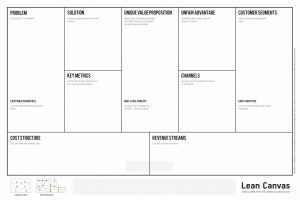Branch
Select your branch
S2S: From Science to Start-up Wrap-up
S2S, the Science to Start-up workshop series, is a fundamental programme that teaches how to establish a start-up in today’s fast-paced and competitive market. Herein we provide a brief summary of the events.
9th of May – Idea generation/ Lean Canvas
Davide Turi gave an inspirational talk on the step-wise approach to generating an idea and using a lean canvas to set out problems, solutions, key metrics and competitive advantages of the potential business.

See the link below for an explanation of : How to compile a Lean Canvas, the business plan in one page, by Davide Turi
16th of May – Business plan
Nilema Bhakta-Jones gave an enthralling overview of some the challenges she faced over the course of her career and recommendations on approaches to starting a new business.
Her slides are available to download using the following link: UCL Innovation Nilema May 2018
23rd of May – PR/ Communications
Flavia Rubino gave an in depth explanation of the importance and use of marketing, PR and communications in today’s businesses.
Flavia’s slides will be available to download shortly
30th of May – Marketing
Tobias Wingbermuehle’s background in sales and brand management was demonstrated through his exciting crash course on modern tools for marketing life science startups.
Tobia’s slides are available to download using the following link: Clustermarket – UCL Workshop
6th of June – How to recruit the best team/ networking
Having gained experience as a tech wizard at the founders factory, and experienced the setting up his own start-up, Marti Markov shared his personal views and experiences in the process. Marti explained the importance of finding the right people for any project and helping them grow as a team.
Marti’s slides will be available to download shortly
13th of June – Finances
20th of June – Intellectual Property
27th of June – How to pitch/ get investment
28th of June – Mentor Clinic
4th of July – Final pitching
1. Business
- Are the Pitch and Business plan clear and concise?
- Is this a sustainable business with significant growth and profit potential?
- Are the potential benefits of the product/service for the customer clearly explained (USPs)?
- Has the team demonstrated a convincing need for a non-dilutive award?
2. Content
- Does the business have a strong content-base?
- Is the premise reasonable, non-biased and validated?
- What’s the degree of novelty/innovation of the proposed technology/service?
- Is the business based on a strong and clear intellectual property position?
3. Team
- Is the team well-balanced in terms of expertise?

